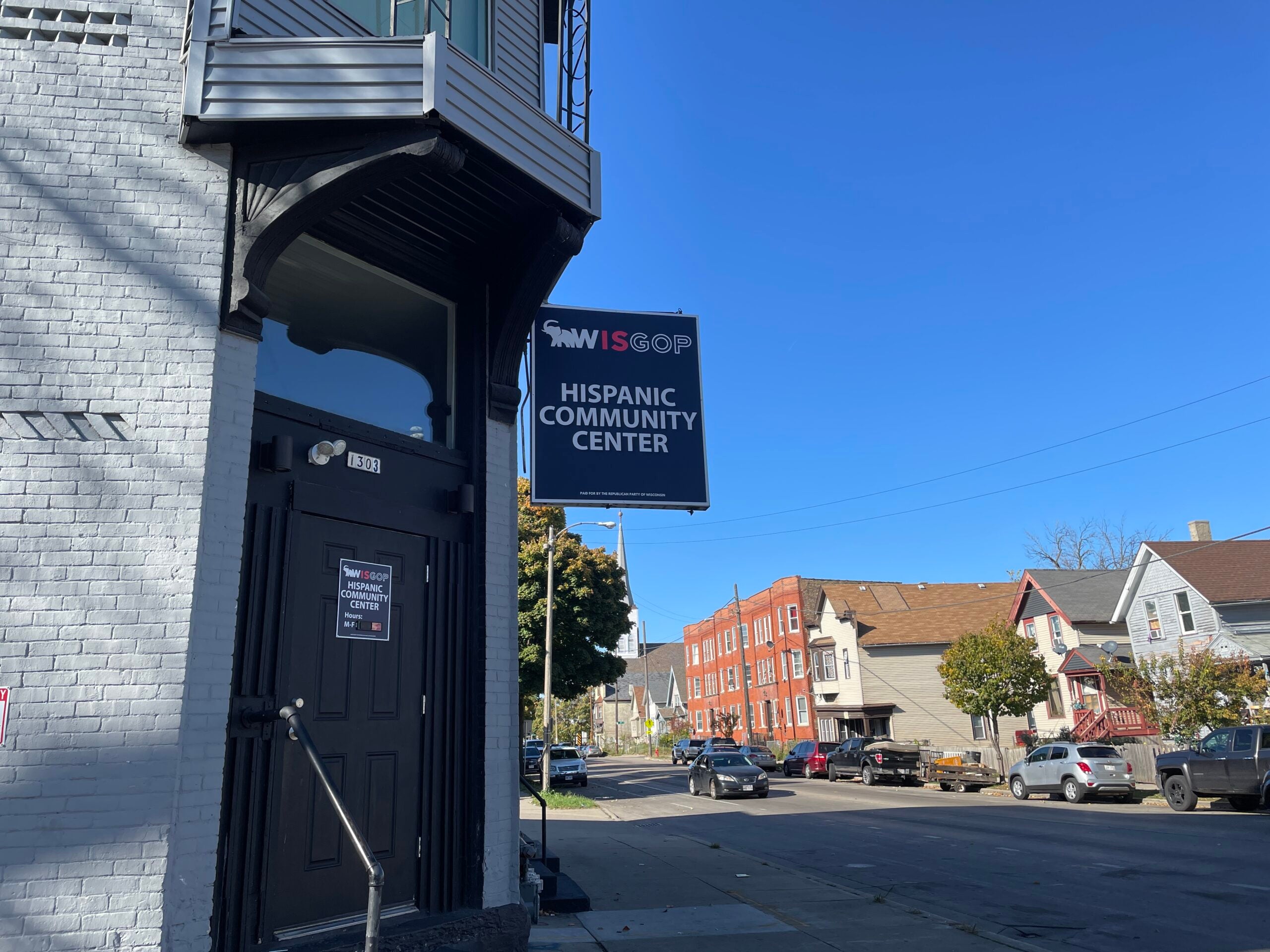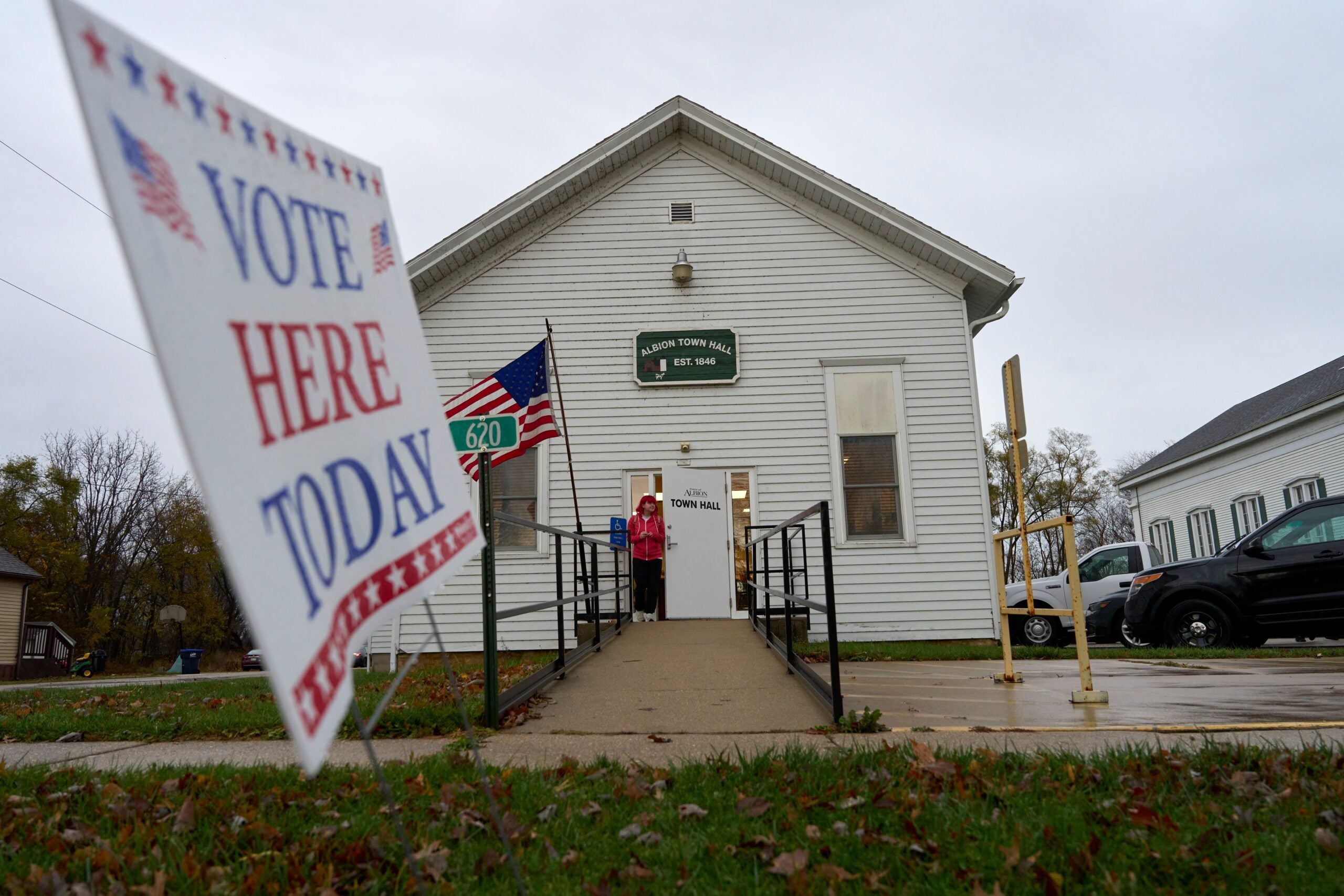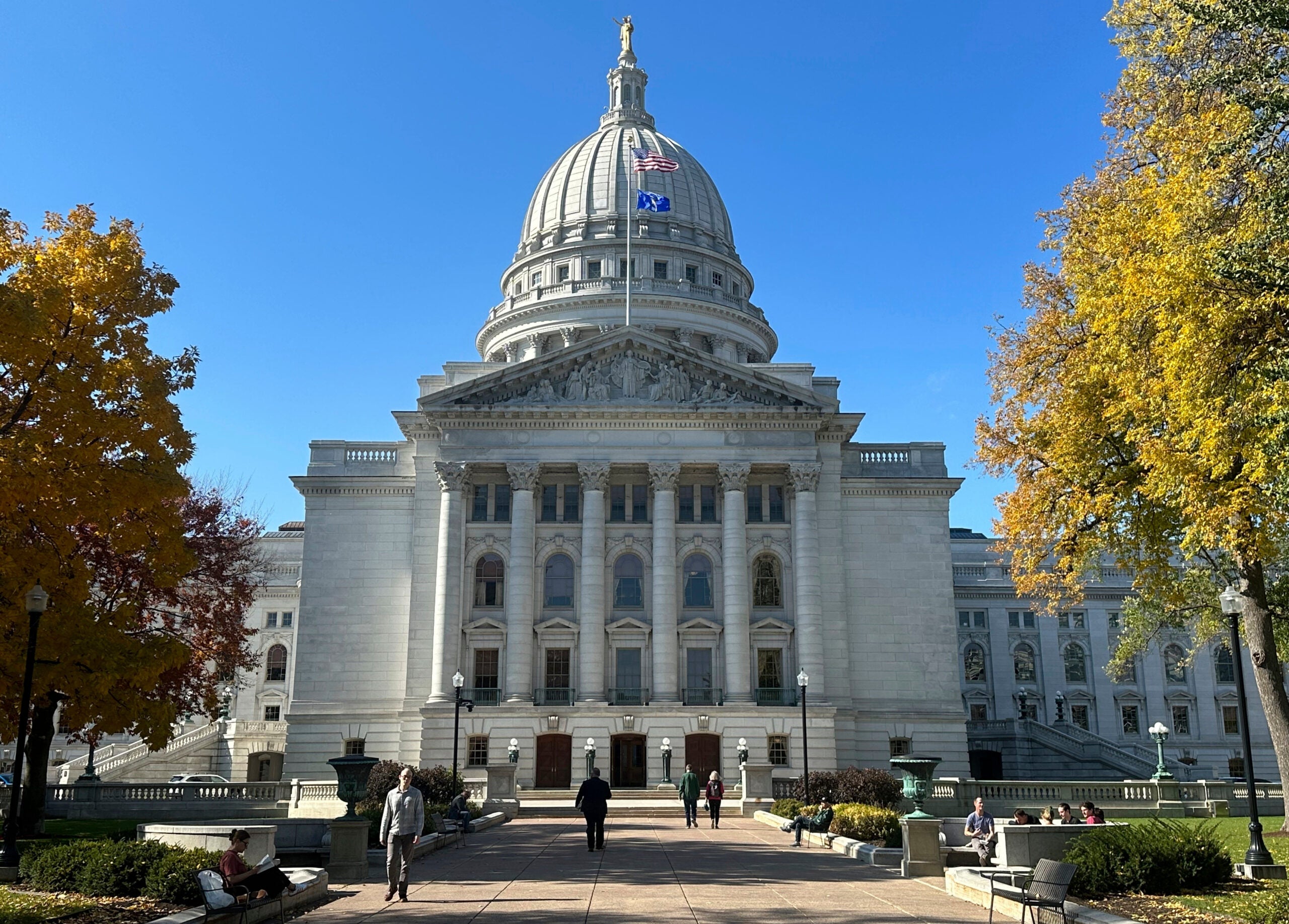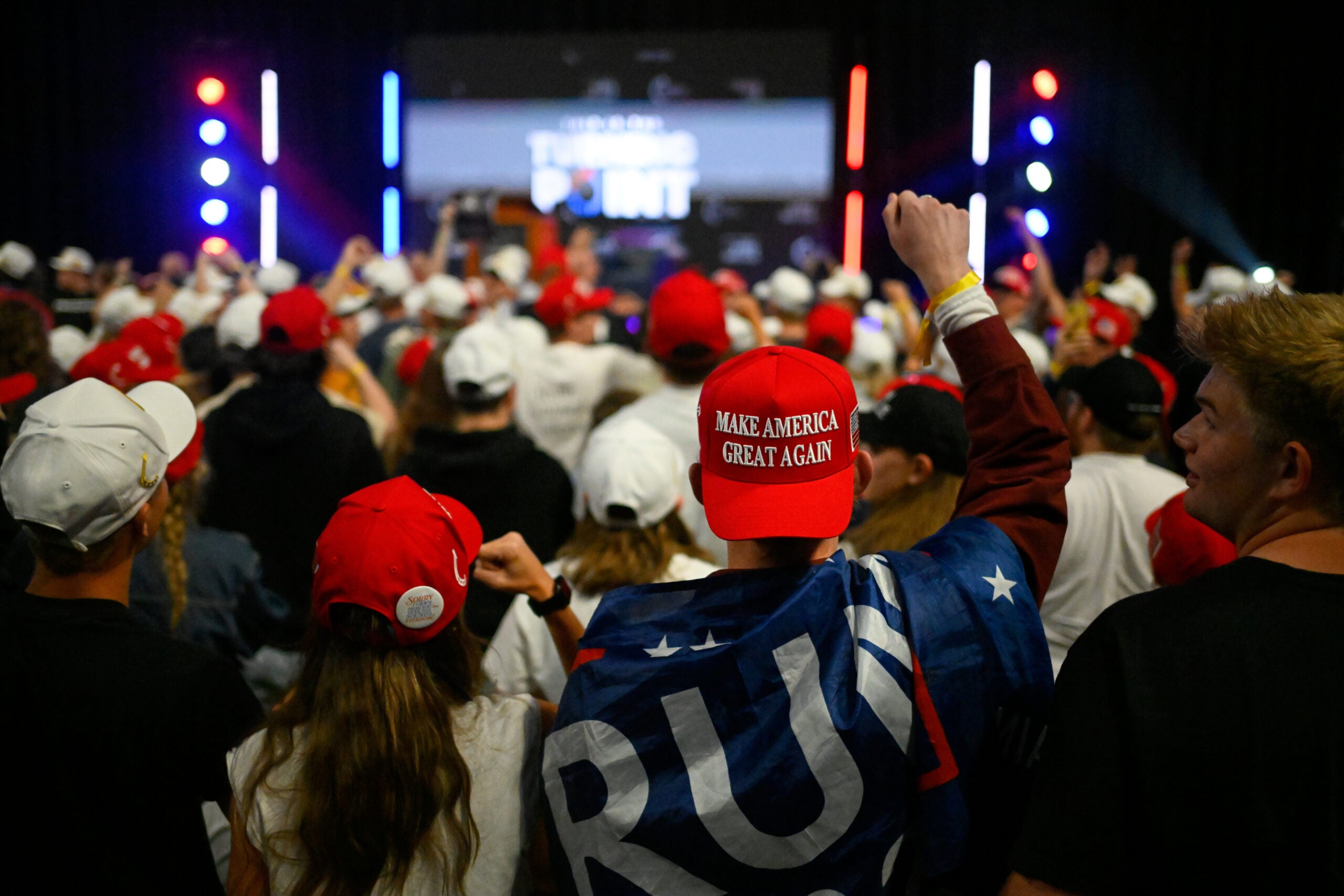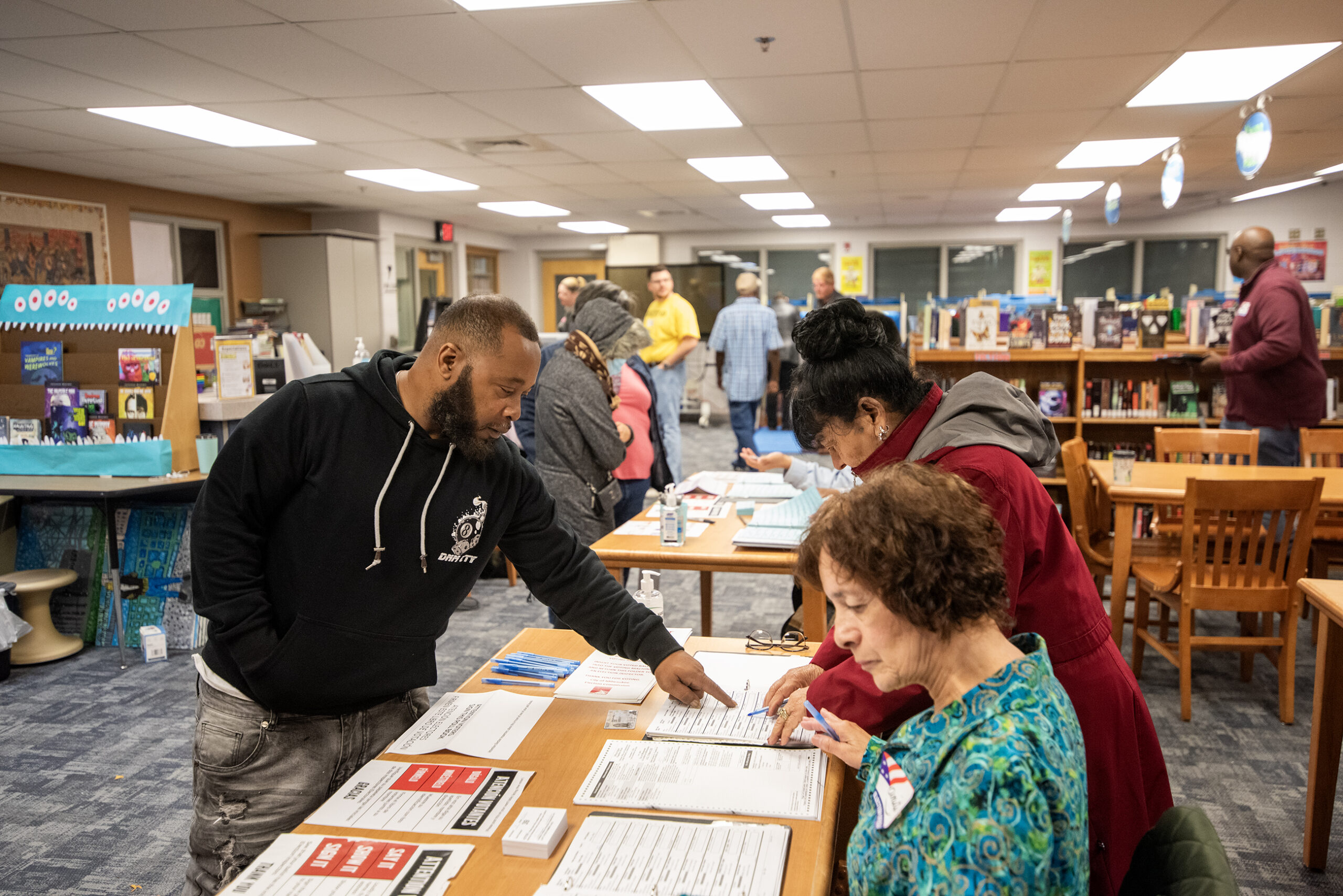More Wisconsin Latinos voted for President-elect Donald Trump this presidential election than in 2020. The same was true across the country.
Now, both major political parties are trying to figure out how to appeal to this growing and diverse group of voters.
Ricardo Torres is a reporter at the Milwaukee Journal Sentinel. “Morning Edition” host Alex Crowe spoke with Torres on his reporting about outreach to Hispanic voters leading up to the election.
News with a little more humanity
WPR’s “Wisconsin Today” newsletter keeps you connected to the state you love without feeling overwhelmed. No paywall. No agenda. No corporate filter.
This interview has been edited for clarity.
Alex Crowe: Just in general as a voting group, what does the Latino vote look like in Wisconsin, and how did that vote turn out in the presidential election?
Ricardo Torres: The Latino population in general is the largest minority in the state of Wisconsin. Now that doesn’t mean that they are the largest minority voting group.
There are certainly some that aren’t 18 that can’t vote yet. There are some who aren’t citizens, but may be here legally, that can’t vote. Some who might be here illegally and can’t vote. So it’s a group that’s gaining more power slowly in Wisconsin.
AC: So when we look at the Latino vote in in the state of Wisconsin, Latinos are not one monolithic group, right? So what were some of the issues that were most important to this voting block in Wisconsin this past election?
RT: Economy was definitely a top issue for Latino voters, but it was an issue that was important to all voters in general. That’s one of the things that I think it’s unique, like it’s not a group that has one particular issue that’s associated with it.
What this group cares about is what everybody cares about. They care about the economy. They care about having safe neighborhoods.
On election day, I talked to a voter on the south side. He was brought to the polling place by his sister, who had DACA, which is a deferred action for childhood arrivals. She is here legally because of DACA, but she can’t vote. He was born here.
So she and him made this plan to go to the polls together. He cast his vote for Kamala Harris because, as he told me, he feels like there was some pressure on him to have a voice for people that he knew, like his sister, that weren’t able to vote.
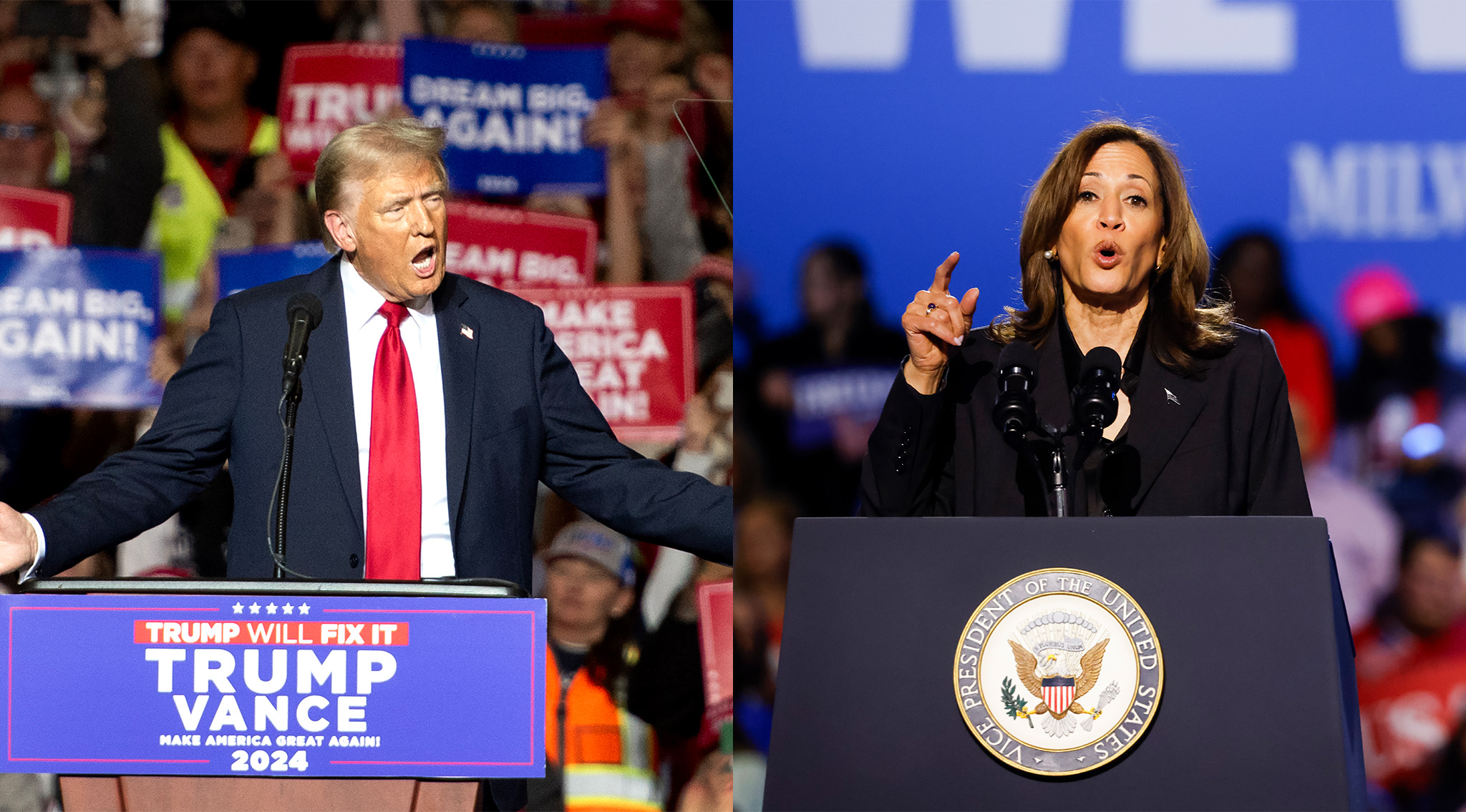
Democrats did win the Latino vote here in Wisconsin. Harris did win the majority of the Latino vote, but the margins by which she won them were a lot smaller than Democrat presidential candidates won in the past.
According to the Marquette Law School poll with Hispanics, previously Democrats, had a 61 net margin, meaning that 61 percent advantage. Now that margin shrank to 42 in this past election. So a pretty significant chunk has moved over to the Republican side for this election.
But as we also saw in Wisconsin, Tammy Baldwin won reelection statewide. So it just kind of adds to the complicated nature of voting and people in general.
AC: Ricardo, is there anything you’re following right now, as we’re still combing through all this election data and looking at where those political parties are going to go from here?
RT: In the lead up to this election, both parties did outreach in Latino communities. They knocked on doors, they did their best to get their messaging out and to make their pitch for their candidates at the top of the ticket.
One thing that the Republicans did in Milwaukee that was different from Democrats, is the Republicans had a lot of public events. They weren’t necessarily well attended. It’s not like they got 50, 60, 100 people, but it was a dozen here, a dozen there. They were open and available and very public in the community.
Whereas Democrats also did in-person events, but it was a lot more private, and also their offices were opened very late in the cycle. It wasn’t a place where people could go to to get information if they wanted to. So it was definitely a different approach.
At least on the Republican side, they’re considering keeping that South Side office open to do more outreach.
I think the one thing that we can expect is the unexpected, and so we’ll see how long this trend continues with Latino voters. Maybe it’s just a one off for this one election. Maybe it’s something that’s the start of a new shift.
Wisconsin Public Radio, © Copyright 2025, Board of Regents of the University of Wisconsin System and Wisconsin Educational Communications Board.

